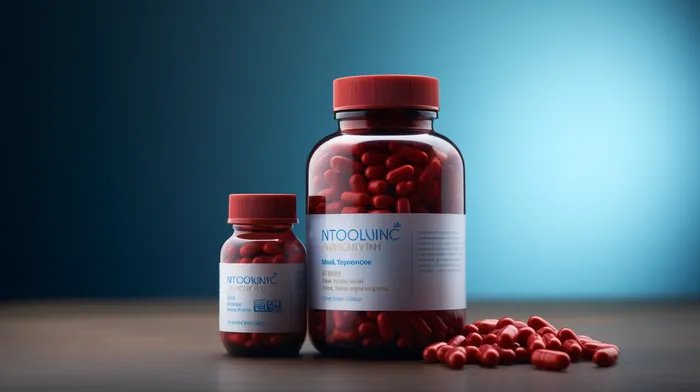Your brain is one of the most vital organs in your body, and as you age, it may start to shrink—taking your thinking skills down with it. But what if I told you that maintaining adequate levels of one crucial vitamin could protect your brain from this deterioration? Vitamin B12 could be the key to safeguarding your mind and preserving its function throughout your golden years.
The Impact of B12 on Brain Health
Researchers at Rush University Medical Center in Chicago have discovered that older individuals with low levels of vitamin B12 in their bloodstream may be more susceptible to losing brain cells, resulting in impaired thinking skills. The study involved 121 participants aged 65 and over, all residing in the South Side of Chicago.
The researchers drew blood samples from the participants to measure levels of vitamin B12 and B12-related metabolites that could signify a deficiency. Additionally, the participants underwent tests to assess their memory and other cognitive abilities. Follow-up MRI scans of their brains were conducted about 4.5 years later to evaluate total brain volume and identify any signs of brain damage.
The results? Those with B12 deficiencies were more prone to having decreased brain size and function.
Why B12 Matters for Your Brain
Vitamin B12 plays a crucial role in maintaining the optimal health of your brain, primarily because it helps keep your nerves functioning properly. In doing so, it indirectly shields the myelin sheath, a fatty coating that surrounds and insulates nerve fibers. This sheath accelerates the transmission of nerve impulses, which in turn improves overall brain function.
Moreover, B12 is pivotal in the production of a variety of neurotransmitters and hormones, which directly impact an individual’s memory, mood, and cognitive capability. Without sufficient B12 levels, these vital brain molecules may be imbalanced, potentially causing cognitive decline and even neurological disorders.
How to Get the B12 Your Brain Needs
You don’t have to leave your brain’s health to chance—there are several ways to ensure you’re getting the necessary amount of B12:
Eat B12-rich foods: Vitamin B12 is predominantly found in animal-based foods, such as fish, shellfish, poultry, eggs, and dairy products. Some fortified cereals, soy products, and nutritional yeast also contain B12.
Supplements: If you’re not getting enough B12 from your diet, you can consider taking supplements. B12 supplements are available as pills, sublingual tablets (dissolved under the tongue), or even as a nasal gel.
Regular check-ups: Schedule routine blood tests with your doctor to monitor your B12 levels. This is especially important for older adults, as their ability to absorb dietary B12 might decrease with age.
Attention: Vegans and Vegetarians
If you follow a plant-based diet, you’re at a higher risk of developing a B12 deficiency due to the scarcity of B12 in plant foods. Ensure you’re consuming enough B12-fortified foods or supplements to avoid any detrimental effects on your brain’s health.
B12 and Cognitive Diseases
While adequate B12 levels contribute to overall brain health, low levels have been associated with various cognitive and neurological disorders.
Alzheimer’s and Dementia: Research suggests that low levels of vitamin B12 could be linked to an increased risk of developing Alzheimer’s disease and dementia. Though more studies are needed to determine the relationship between B12 and these conditions, maintaining proper B12 levels may help stave off their onset.
Depression and Anxiety: Insufficient B12 levels have been connected to higher rates of depression and anxiety. The reason being, B12 is crucial for the production of certain neurotransmitters—such as serotonin and dopamine—that stabilize mood and regulate stress response.
Mental Fatigue and Memory Loss: A B12 deficiency may lead to mental fatigue, memory loss, and a general decline in cognitive function. Regularly monitoring and maintaining B12 levels can help counter these issues.
In conclusion, vitamin B12’s undeniable impact on the health of your brain is reason enough to make maintaining proper levels a priority. Talk to your doctor about how you can incorporate B12 into your daily routine, whether through your diet, supplements, or other means. Remember—your mind matters most, and giving it the resources it needs to function optimally is crucial for living a long, fulfilling life.



